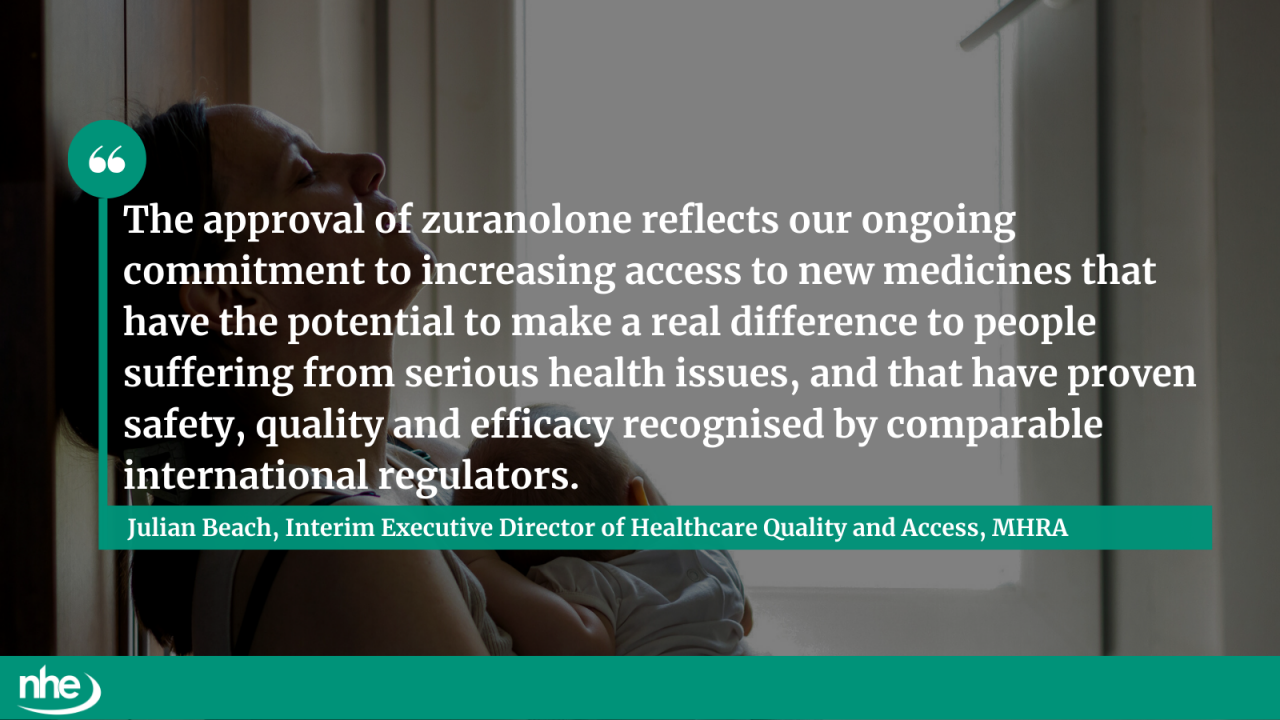The Medicines and Healthcare products Regulatory Agency has approved zuranolone (Zurzuvae) as the first oral treatment for moderate to severe postnatal depression in adults following childbirth.
PND affects more than 1 in 10 women within a year of giving birth, with symptoms including persistent sadness, anxiety, fatigue, disrupted sleep, and loss of interest in daily activities. The approval of zuranolone marks a significant step forward in expanding treatment options for new mothers.
Zuranolone is taken as a 14-day oral capsule, administered at night with a fat-containing meal. It was approved following a rigorous assessment of its safety, quality, and efficacy by the MHRA.
Common side effects include:
- Memory impairment
- Drowsiness and sedation
- Dizziness and confusion
- Tremor, diarrhoea, and fatigue
Due to its sedative properties, zuranolone may impair driving and must be prescribed under the supervision of a specialist team. It is contraindicated during pregnancy due to the risk of fetal harm, and women must use effective contraception during and for one week after treatment.
Julian Beach, Interim Executive Director of Healthcare Quality and Access at the MHRA, commented:
“Keeping patients safe and enabling their access to high quality, acceptably safe, and effective medicines are key priorities for us.
“The approval of zuranolone reflects our ongoing commitment to increasing access to new medicines that have the potential to make a real difference to people suffering from serious health issues, and that have proven safety, quality and efficacy recognised by comparable international regulators.
“We are assured that the appropriate regulatory standards for the approval of this medicine have been met.
“As with all products, we will keep the safety of zuranolone under close review.”

The approval was granted to Biogen on 27 August 2025 via the International Recognition Procedure (IRP). The MHRA will continue to monitor the safety of zuranolone, with a further safety study planned.
This milestone supports the NHS’s commitment to improving maternal mental health and increasing access to innovative treatments that can make a real difference to patients’ lives.
Image credit: iStock



















